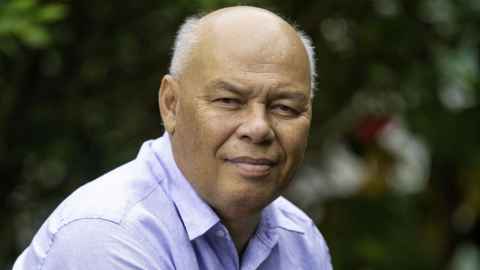Experts examine climate impacts on Pacific health
30 May 2025
The devastating impacts of climate change on health in the Pacific Islands will be discussed at a symposium at the University of Auckland on 5 June.

The Vulnerability to Vitality symposium on 5 June will examine the health impacts of climate change in the Pacific and share potential solutions.
Climate change is driving up temperatures in the islands – and heat is a “silent killer”, says Dr Roannie Ng Shiu, a key speaker at the symposium and a director of the University’s Te Poutoko Ora a Kiwa – Centre for Pacific and Global Health.
“More than 2000 people died of heat-related conditions in the Pacific Islands between 2000 and 2022. Heat stroke is the main cause of death,” she says.
While health services can advise people to stay cool and hydrated, poor access to clean drinking water in many Pacific Islands makes that more difficult, Ng Shiu says.
“What we really need is a better international commitment to reducing greenhouse gases.
“Pacific people are resilient. We’ve been adapting for years, but our adaptation measures can’t keep up with the rate the climate is changing,” she says.
Increasingly hot, wet weather is causing spikes of diseases, such as dengue fever, zika, chikungunya, which are spread throughout the Pacific by Aedes mosquitos. In Papua New Guinea, malaria is also a growing risk.
“Two young people have died from dengue fever in Fiji and Samoa over the past few weeks – one was a 12-year-old boy - and there’s an outbreak in Tonga too.”
Ng Shiu says one solution to infectious diseases rising as the climate warms is to better integrate health and meteorological surveillance systems.
She says more funding is needed so weather services can provide warnings to Pacific health services about upcoming periods of wet, hot weather, enabling agencies to fumigate areas where mosquitos breed.

Funding is also required for research into the mental health impacts of climate change in the Pacific, Ng Shiu says.
“We’re hearing about children in Fiji who have been traumatised by cyclones destroying their villages, so as soon as they hear strong winds, they run away from school in terror.”
New Zealand government policies are exacerbating climate change, rather than turning the tide, she says.
“New Zealand is supposed to be the heart of the Pacific, so they should be doing more to protect it.”
Speakers at the symposium will include Te Poutoko Ora a Kiwa director Professor Sir Collin Tukuitonga, Te Whatu Ora Director of Public Health Dr Corina Grey, University of Auckland Professor Cliona Ni Mhurchu, and Fred Hollows Foundation NZ chief executive Dr Audrey Aumua.
Pacific Islands experts travelling to Aotearoa to speak at the event include director of the Fiji Institute of Pacific Health Research at Fiji National University Associate Professor Donald Wilson and Samoa’s Director General of Health Aiono Professor Alec Ekeroma.
Te Poutoko council chair and former New Zealand Director-General of Health Professor Sir Ashley Bloomfield will facilitate a panel discussion at the symposium, featuring University of Auckland Professors Jemaima Tiatia-Siau and Dame Teuila Percival, and Ekeroma, Wilson and Grey.
Tagata Pasifika director and reporter John Pulu will be MC and Reverend Igasiatama Mokele will offer opening and closing prayers.
The symposium on Vulnerability to Vitality - Pacific and Global Health responses in a changing climate is on 5 June from 9am to 4pm at Fale Pasifika, 22 Wynyard Street, Auckland.
All are welcome to attend. Register here.
Media contact
Rose Davis | Research communications adviser
M: 027 568 2715
E: rose.davis@auckland.ac.nz